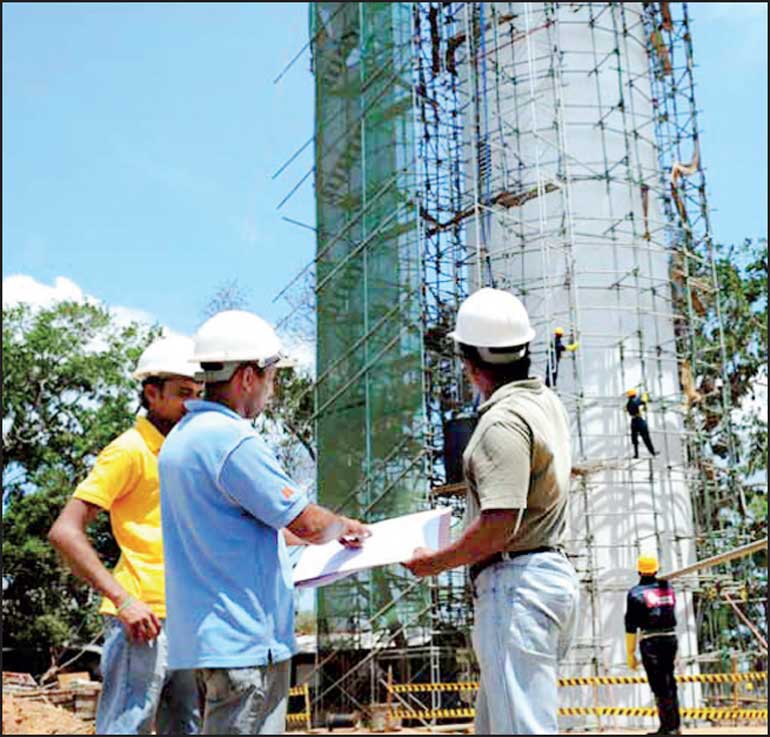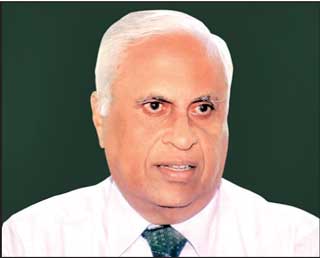Thursday Feb 19, 2026
Thursday Feb 19, 2026
Friday, 29 December 2023 00:34 - - {{hitsCtrl.values.hits}}

 |
| Chamber of Construction Industry of Sri Lanka Secretary General/CEO Nissanka N. Wijeratne |
The construction industry, already hit by multiple crises, yesterday warned of collapse due to the increase of the Value Added Tax (VAT) from 15% to 18% from 1 January 2024.
“The construction industry has suffered contractions repeatedly since June 2021 to date. Even in 2020 it suffered a reduction by 13.2%. From June 2020 up to now the total contraction is about 50%,” Chamber of Construction Industry of Sri Lanka Secretary General/CEO Nissanka N. Wijeratne said.
“This is amply validated by more than 50% reduction in the demand for major building materials such as cement, reinforcing steel, ceramic tiles, roofing sheets, etc.,” he added.
Wijeratne lamented that the precarious situation compounded with other issues such as, delays in payments for work done to construction companies, non-reimbursement of cost increases, suspension of projects in February 2023 and parate execution by banks to recover mortgaged assets.
“Even the remaining companies would be forced to liquidate,” the Construction Industry of Sri Lanka CEO warned.
For this reason the Chamber has advocated to suspend parate execution by banks at least until the end of 2024, when the construction industry was expected to show a reasonable growth.
“But, with the VAT increased to 18% and it being applied to items that were exempted earlier would further increase construction costs. Already our unit construction cost is second only to Singapore in South Asia. Especially, the increase in fuel prices by 10% would have a cascading effect,” Wijeratne warned.
“With increased costs and diminished household incomes we cannot expect more house constructions by individuals and even other private sector developments,” he added.
According to Wijeratne, even in Budget 2024 there aren’t many capital allocations and it may not be possible to start any new projects besides resuming some of the suspended projects.
“The only hope the industry can have is if any donor funded projects are started on completing the debt restructuring process,” he added.